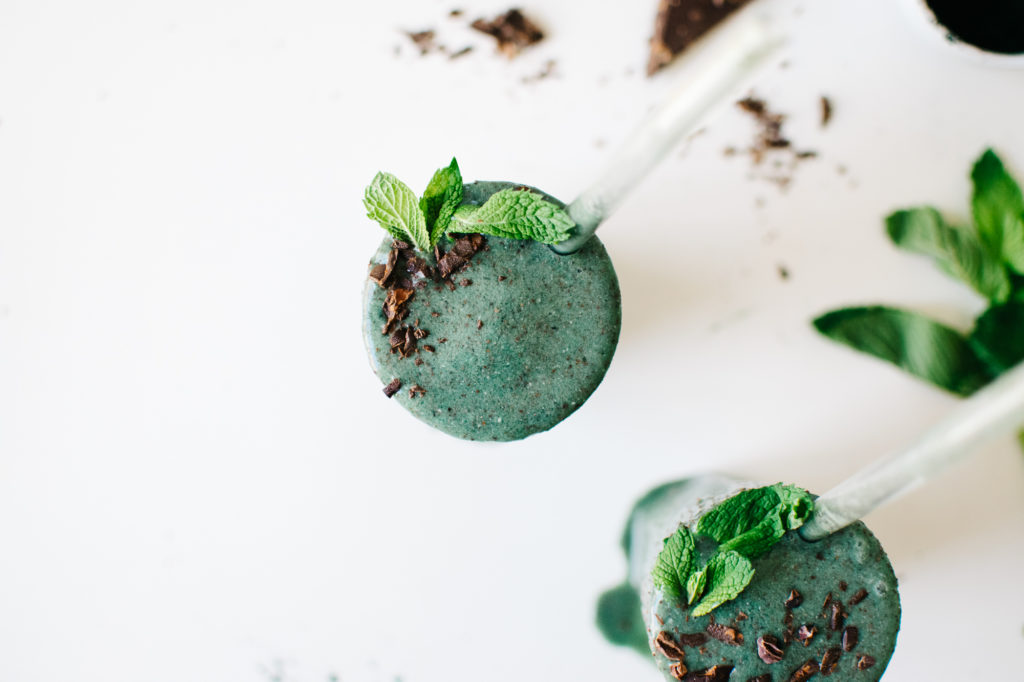
Good morning, sweet ones. I stopped and started this post several times, because each time I began, I found myself writing something darker than the time before. My heart has been heavy. Heavy with Nice. Heavy with the United States. Heavy with Turkey. Heavy. One day I let myself sink deep into it, curl down into the sadness, and only emerge to paint my nails sparkly blue. It was the best I could do in that moment, and it was most certainly not enough.
My father and I have been exchanging phone calls about all of the murders, the killings, the coups. Our talks often have long pockets of silence in them, heart openings so big neither of us have anything to say to fill them. We murmur things like just awful, can you believe, horrifying. And at the end of each call, we willingly attempt to dull our minds into submission, forgetting. Because that willing forgetfulness seems to be the only way to move forward.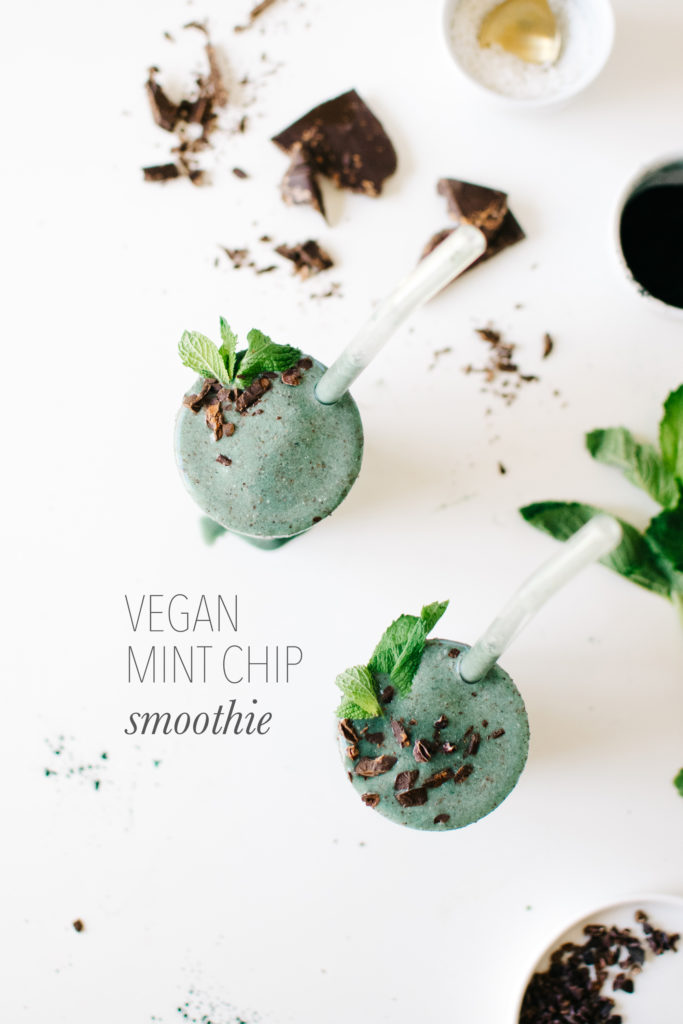
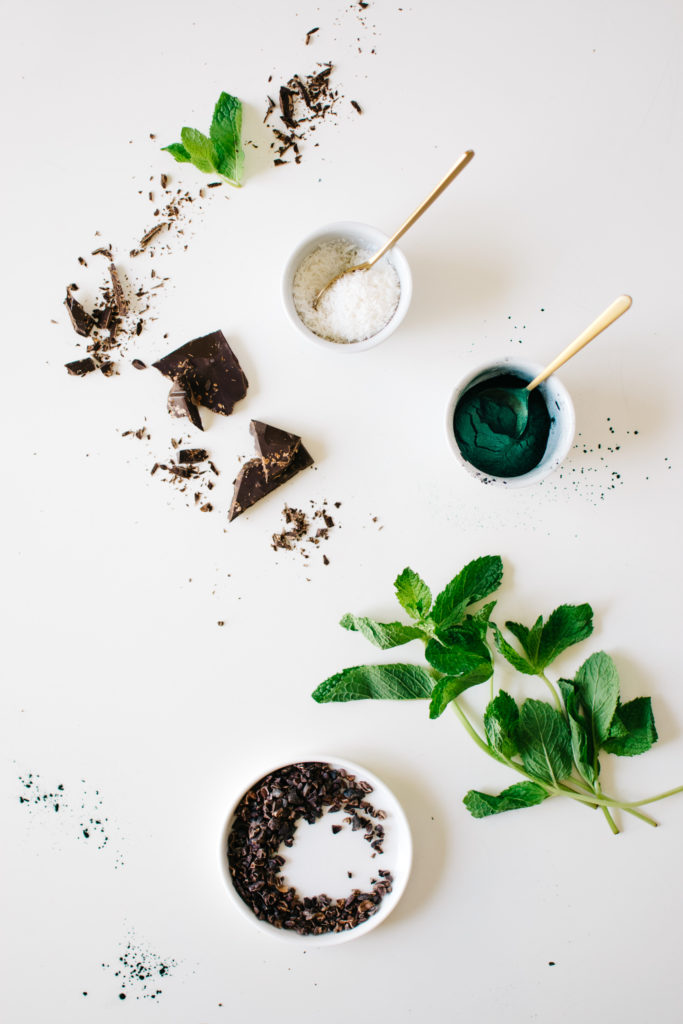
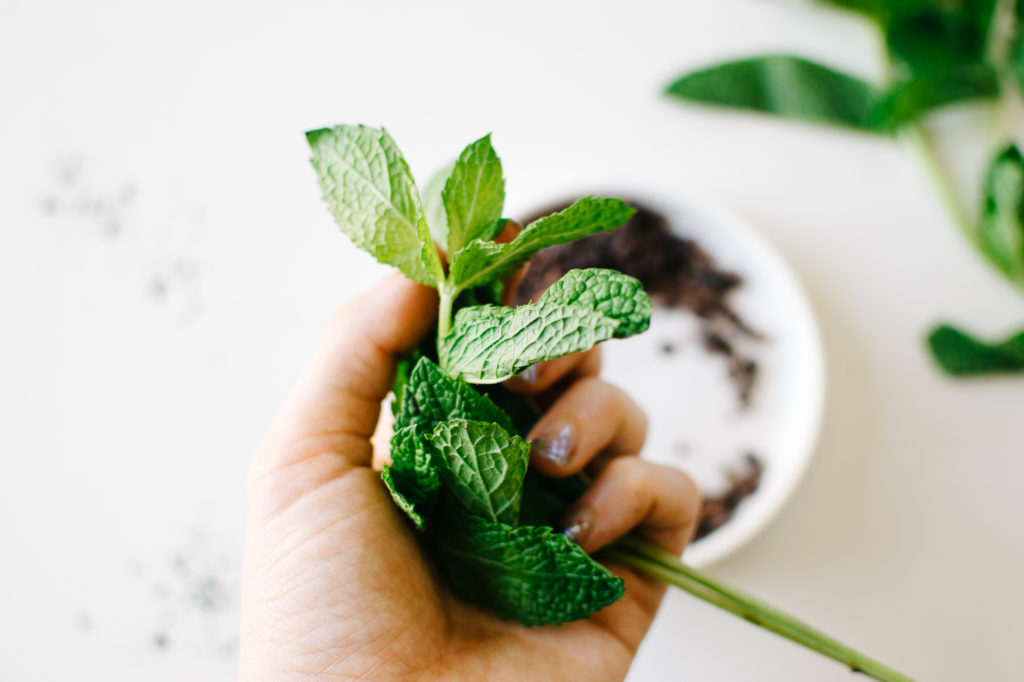
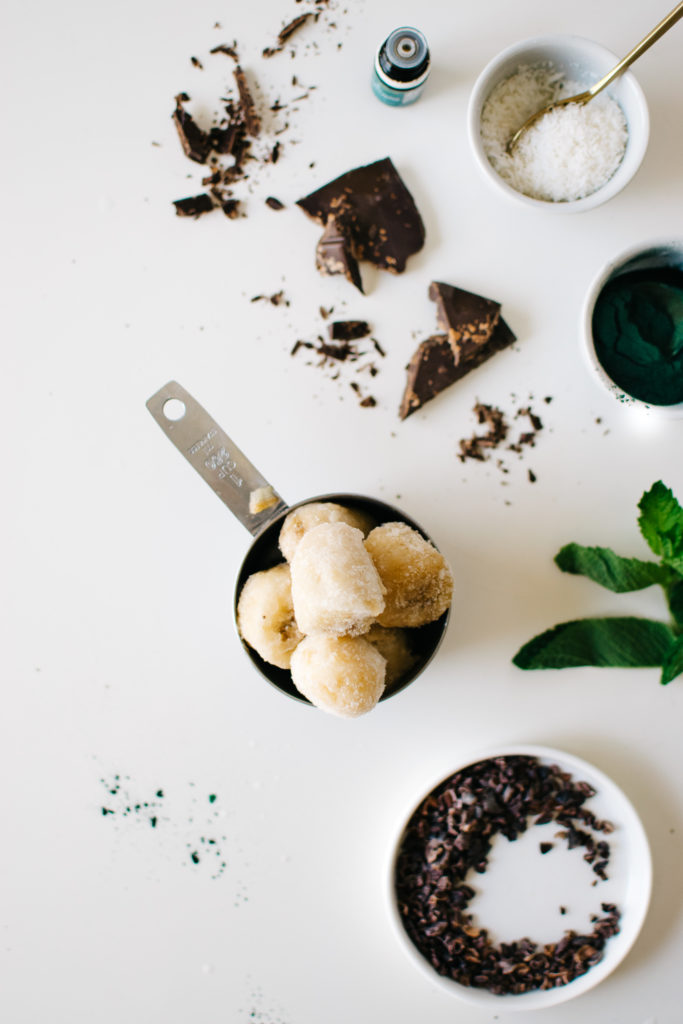
Yesterday, though, I got a voicemail from my father that said something different. “Hey Lily, it’s Dad. We were just listening to an NPR program that discussed a new book by a Harvard psychologist that goes into great detail about violence right now, and how it is much, much less than it was in the past. That—as a matter of fact—there’s a big swing from the ‘60s and ‘80s to now that shows much less violence than before. It’s statistically proven. It’s not even a question. So the real culprit here is social media—and media in general—that covers these things as soon as anything happens, and we immediately read it, think about it, and assume that the world is going to…” He paused there, then resumed: “And it’s just not true. It’s not a fact, honey. Love you. Bye.”
Whoa. That was certainly the last thing I’d expected to hear. I was hopeful, yet skeptical. But Professor Steven Pinker, author of “The Better Angels Of Our Nature: Why Violence Has Declined,“ argues exactly that. Playing devil’s advocate with Pinker on NPR elicited the following response from him, “The impression that some kinds of violence have gone up over the last five years has some truth to it. But both [the rate of death in warfare and the rate of homicide in the US] are at a fraction of what they were in the ‘60s, ’70s and ’80s.”
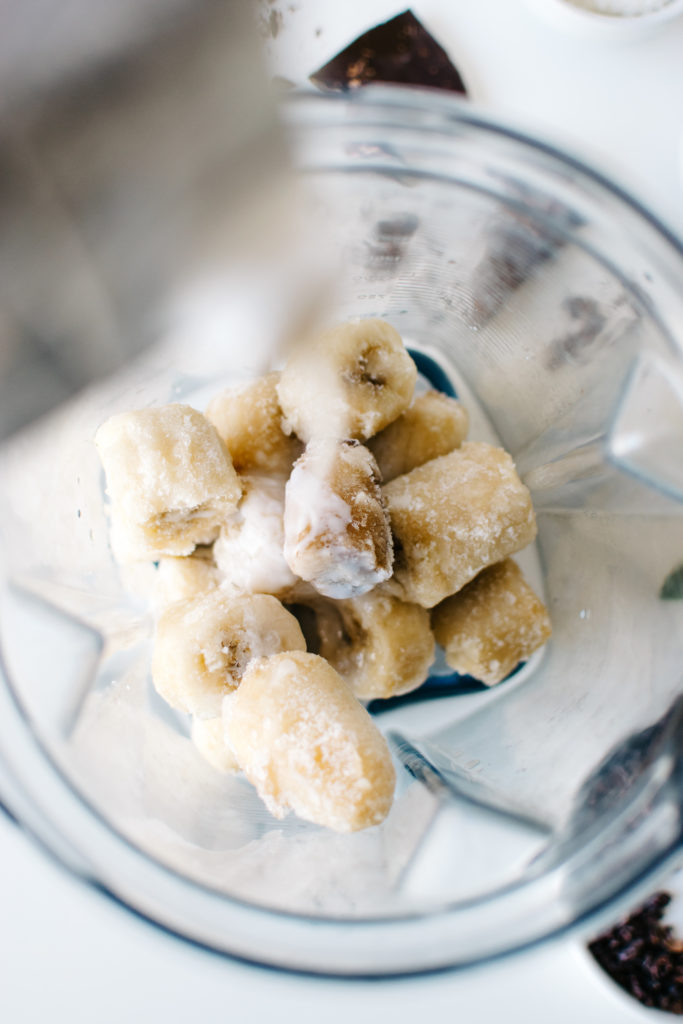
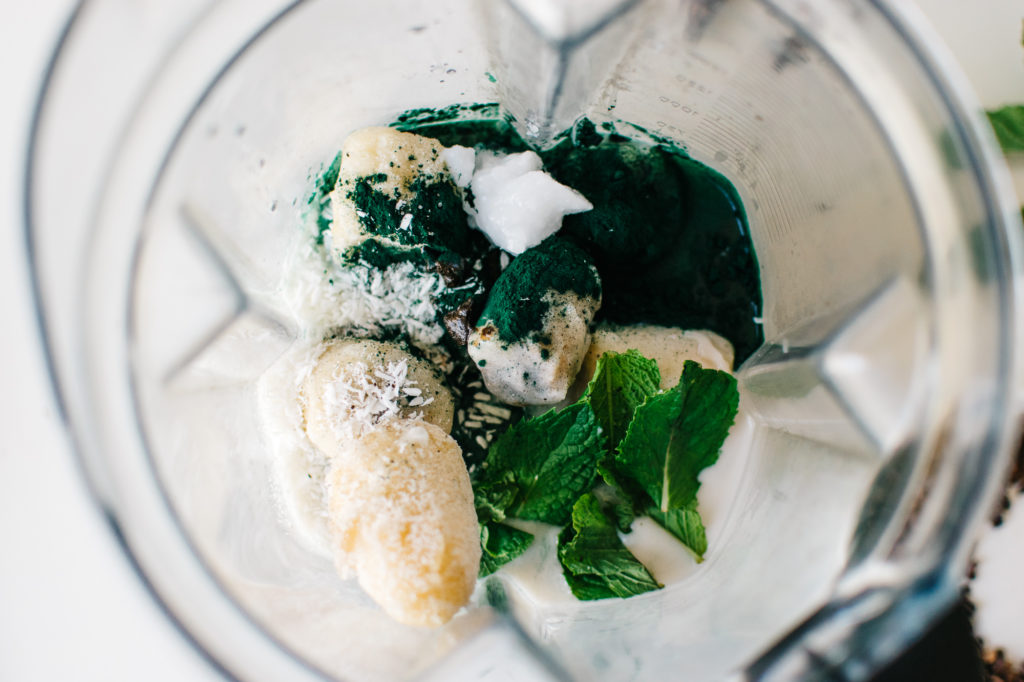
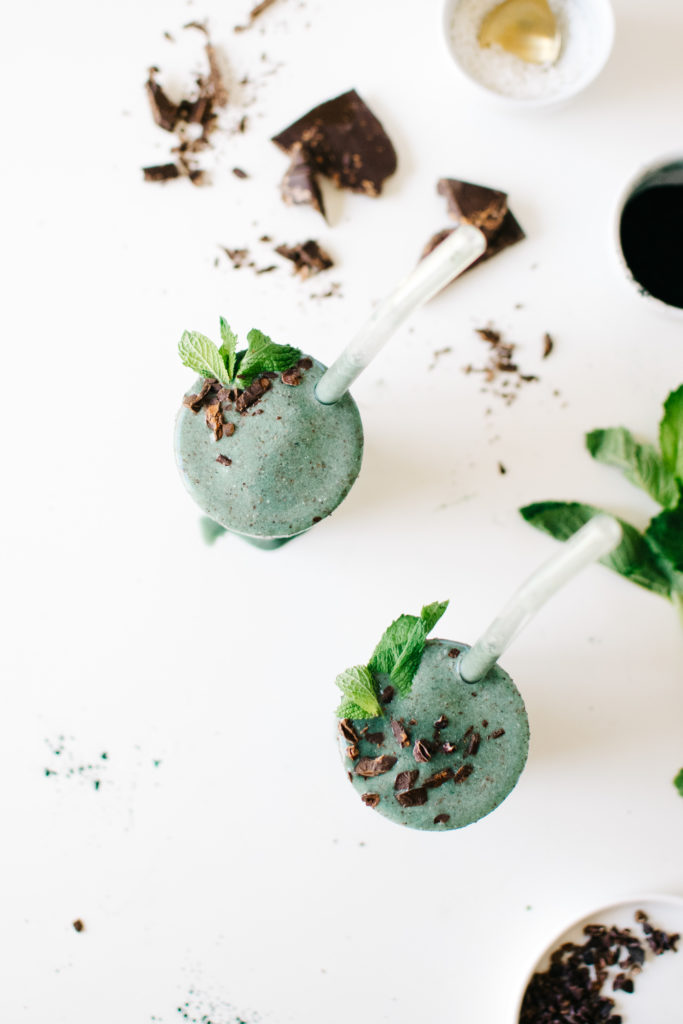
It seems almost impossible, doesn’t it? But as Pinker explains, “[Terrorists] have hit on a formula for guaranteeing news coverage and guaranteeing the attention of the world. I actually think that is a pathology of journalism that because it is so driven by events that happen in a discrete moment in time, it often ignores long-standing trends that transform the world that you may not notice on a day-to-day basis.”
Which means that, at the end of the day, perhaps we are all victims to a kind of terrorism of media. It makes sense. We consume media more than we consume food. For many of us, that consumption—via social media, news, and entertainment—lasts from the moment we open our eyes to the moment we fall asleep. It lasts far longer than it needs to in order for us to assimilate the news as responsible global citizens (which, to be clear, I’m not arguing against).
In fact, it strikes me that our obsession with consuming food-related media may act as a demulcent, an easy sensorial sanctuary that gives refuge from the violence, destruction, and terror. We look at food so we don’t have to look at people dying. We imagine the tacos we’ll have for dinner so we don’t have to consider the circus of the presidential election. We obsess over increasingly fantastical cakes so we can forget the raging wars. Isn’t this what Instagram has taught us to do? We break the cycle however we can, and for many of us, that’s with images of the one thing certain to bring us pure, if fleeting, pleasure: Food.
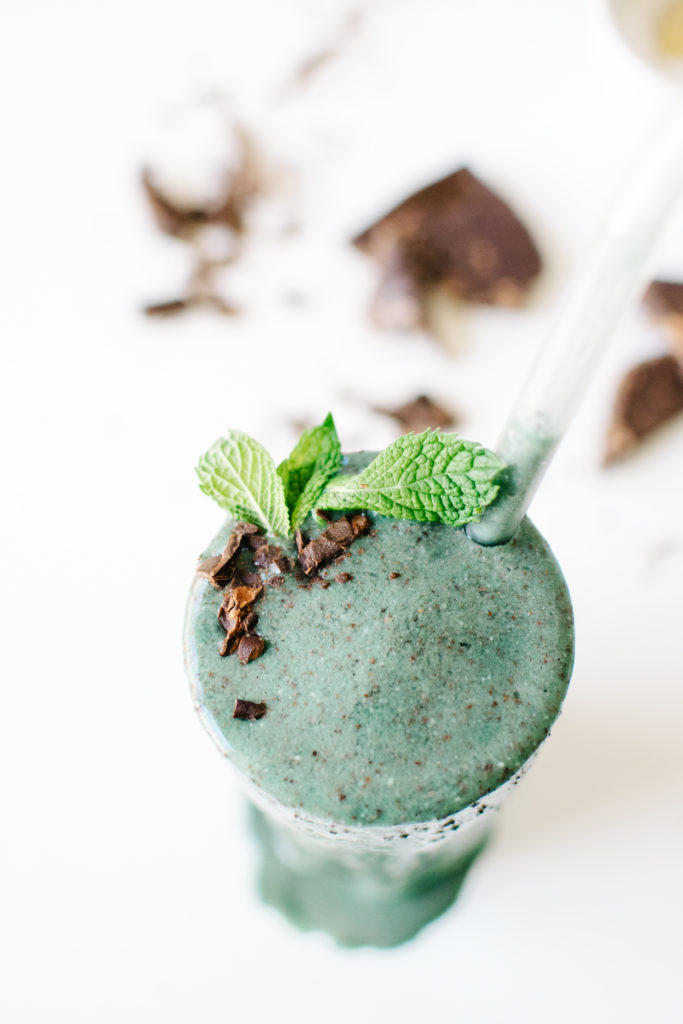
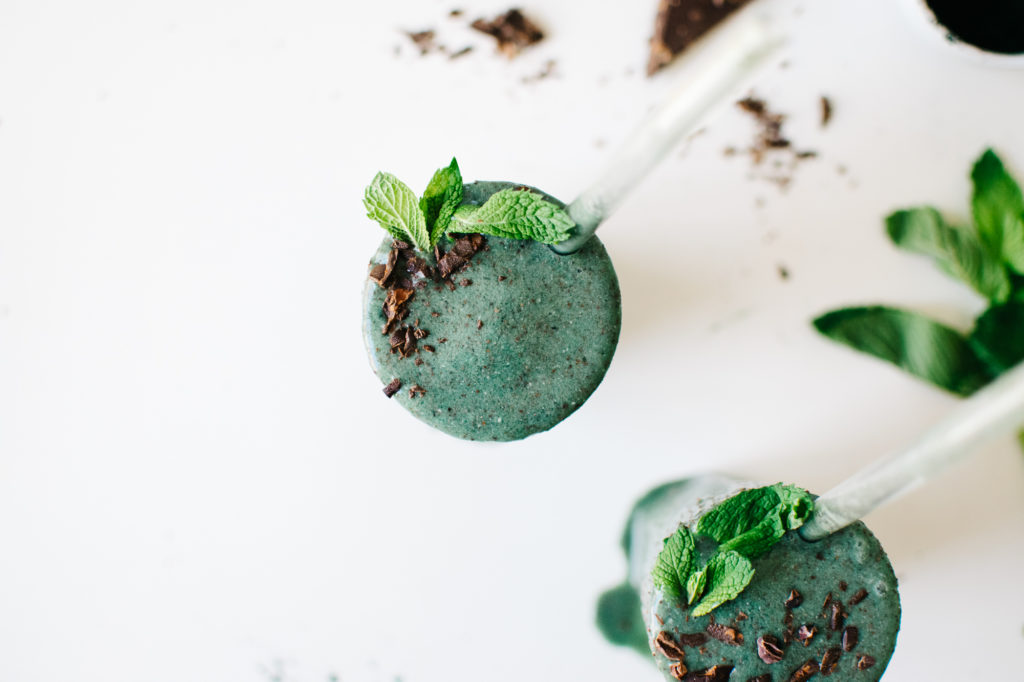
So yes, here I am with just one more way for you to break the media’s obsession with violence: This absolutely vegan, totally suped up mint chip smoothie. Banana, coconut, and vanilla unite to make an incredibly creamy base, into which fresh mint, spirulina, and cacao are added for flavor and powerful awakening qualities. Cacao releases hits of dopamine, and peppermint sparks alertness in the mind. Creamy coconut oil soothes tired digestive systems, and vanilla is an aphrodisiac to sweeten the heart.
I’d give one of these smoothies to Professor Pinker if I could, or heck, to the whole team at NPR. I’d put out a spread of dark chocolate shavings, cacao nibs, and fresh mint for them to top their smoothies with. And, before they went live on air to report the news, I’d ask them to make something beautiful with their breakfast. To take a picture of it. To let the beauty of something so nourishing fill up just a few more moments before the darkness floods in.
ps. If this or another post you’ve read on Kale & Caramel has moved you in the past year, please share the love in this year’s Saveur Magazine Blog Awards—today is the last day to nominate! Simply select the Food and Culture Award category, and mention the link to the post you have in mind. And then vote for all your favorites in this exceptional community.
VEGAN MINT CHIP SMOOTHIE.
Ingredients
- 1 ½ cups milk of choice or 1 ½ cups water + 2 tablespoons hemp seeds
- 2 cups frozen banana chunks
- 4 ice cubes
- 1 tablespoon shredded unsweetened coconut
- 2 teaspoons raw coconut oil
- 1 teaspoon spirulina powder
- 2 drops food-grade peppermint essential oil
- 6 large fresh mint leaves plus extra, for garnish
- ½ teaspoon pure vanilla extract
- 2 pinches sea salt
- 2-3 tablespoons raw cacao nibs plus extra for garnish
- dark chocolate shavings for garnish (optional)
Instructions
- Place all ingredients except cacao nibs in blender, and blend until completely smooth. Stop blender and add cacao nibs. Pulse until nibs are as chunky or smooth as you prefer. Pour and serve with extra cacao nibs, mint leaves, and dark chocolate shavings on top, if desired.



